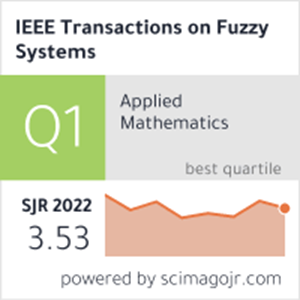基于数据驱动自触发模糊方法的互联非线性系统滑模学习控制
IF 10.7
1区 计算机科学
Q1 COMPUTER SCIENCE, ARTIFICIAL INTELLIGENCE
引用次数: 0
摘要
本研究将模糊逻辑和数据驱动技术相结合,解决了具有未建模动力学的互联非线性系统的基于强化学习的滑模控制问题。通过为所有辅助子系统分配与滑模函数相关的代价函数,将原控制问题等效转化为设计一组自触发更新的最优控制策略。为了得到最优策略,在强化学习框架下构造了一个单批评家网络结构。同时,设计了一种基于模糊逻辑的控制策略,以处理未建模的动力学引起的动态不确定性问题。在此基础上,采用数据驱动的方法,通过三层神经网络重构未知系统动态。最后,通过对两级互连化学反应器系统的优化控制实验,验证了所提控制策略的有效性和优越性。本文章由计算机程序翻译,如有差异,请以英文原文为准。
Sliding Mode Learning Control for Interconnected Nonlinear Systems via Data-Driven Self-Triggered Fuzzy Approach
This study combines the fuzzy logic and the data-driven technology to solve the reinforcement learning-based sliding mode control problem of interconnected nonlinear systems with unmodeled dynamics. By assigning cost functions associated with the sliding-mode function for all auxiliary subsystems, the original control problem is equivalently converted into designing a group of optimal control policies updating in a self-triggered manner. To derive the optimal policies, a single-critic network architecture under the framework of reinforcement learning is constructed. Meanwhile, a fuzzy logic-based control policy is designed to handle the dynamical uncertainty issue aroused from the unmodeled dynamics. Furthermore, a data-driven method is used to reconstruct the unknown system dynamic through a three-layer neural network. Eventually, effectiveness and superiority of the proposed control strategy are demonstrated via experiments on optimal control of an interconnected two-stage chemical reactor system.
求助全文
通过发布文献求助,成功后即可免费获取论文全文。
去求助
来源期刊

IEEE Transactions on Fuzzy Systems
工程技术-工程:电子与电气
CiteScore
20.50
自引率
13.40%
发文量
517
审稿时长
3.0 months
期刊介绍:
The IEEE Transactions on Fuzzy Systems is a scholarly journal that focuses on the theory, design, and application of fuzzy systems. It aims to publish high-quality technical papers that contribute significant technical knowledge and exploratory developments in the field of fuzzy systems. The journal particularly emphasizes engineering systems and scientific applications. In addition to research articles, the Transactions also includes a letters section featuring current information, comments, and rebuttals related to published papers.
 求助内容:
求助内容: 应助结果提醒方式:
应助结果提醒方式:


